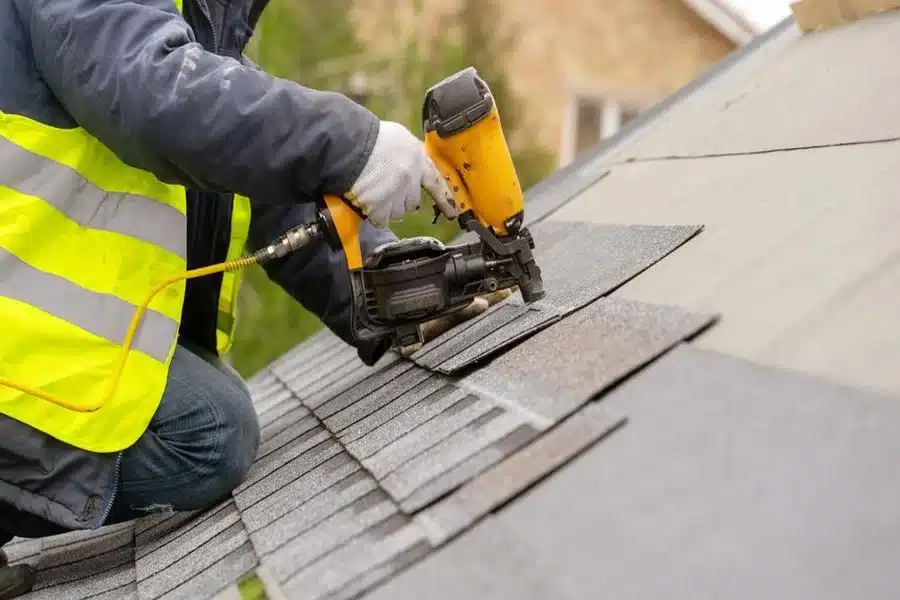Your commercial property is more than just a building—it’s a critical asset that supports your business operations, employees, and customers. One of the most important yet often overlooked elements of that property is the roof. Choosing the right roofing solution can make all the difference when it comes to long-term protection, energy efficiency, and cost savings.
In this guide, we’ll break down what to consider when evaluating roofing options, the most common commercial roofing systems available, and how to find the right contractor to get the job done right.
Understanding Your Roofing Needs
Before diving into materials and systems, it’s important to evaluate your property’s unique needs. Commercial buildings come in all shapes and sizes, and what works for one structure may not suit another.
Consider Your Building’s Use and Location
Think about what goes on inside your building. Warehouses with sensitive equipment, office spaces with high foot traffic, or restaurants with rooftop ventilation systems will each have different roofing requirements. Your local climate also plays a huge role—frequent rain, high winds, or extreme heat can influence which materials perform best.
Evaluate the Existing Roof Structure
Before selecting a new roofing system, you’ll want to understand the condition and limitations of your current roof. Does it have a flat or sloped design? Are there weight restrictions? A professional roof inspection can help identify any underlying issues that should be addressed before installation.
Types of Roofing Solutions for Commercial Properties
When it comes to commercial roofs, there’s no one-size-fits-all solution. Each material offers its own strengths and drawbacks, and the best choice depends on your specific goals and budget.
Single-Ply Membranes (TPO, EPDM, PVC)
These lightweight, flexible membranes are a popular choice for flat and low-slope roofs. They’re easy to install, offer strong UV resistance, and require minimal maintenance.
Built-Up Roofing (BUR)
BUR systems consist of multiple layers of tar and gravel, making them incredibly durable and resistant to heavy foot traffic. While they may cost more upfront, their long lifespan makes them a solid investment for high-use buildings.
Metal Roofing
Metal roofs are known for their strength and longevity. They’re especially effective in areas with high winds or heavy snowfall. Though more expensive than other systems, they often require fewer repairs over time.
Key Advantages of Common Systems:
- TPO/PVC: Energy-efficient and reflective, ideal for hot climates.
- EPDM: Cost-effective and durable, great for colder environments.
- BUR: Multi-layer protection, excellent for rooftop equipment areas.
- Metal Roofing: Long lifespan, modern aesthetic, and great durability.
If you’re exploring your options, it’s a smart move to consult a provider offering reliable commercial roofing services who can tailor solutions to your specific property type and needs.
Factors to Consider When Choosing a Roofing Contractor
Picking the right contractor is just as important as selecting the right roofing material. The right team can make the difference between a project that runs smoothly and one that ends in frustration and costly repairs.
Look for Experience and Specialization
Not all roofing contractors have experience with commercial projects. Look for companies that specialize in commercial properties and have a strong portfolio to back it up. Ask if they’ve worked on buildings similar to yours and how they handled any challenges that came up.
Check Credentials and Reputation
Always confirm that a contractor is licensed, insured, and bonded. Online reviews, testimonials, and industry certifications can also provide insight into the quality of their work and customer service standards.
Questions to Ask Before Signing a Contract:
- What roofing systems do you specialize in?
- A contractor with experience in various materials can offer a well-rounded recommendation tailored to your needs.
- A contractor with experience in various materials can offer a well-rounded recommendation tailored to your needs.
- Can you provide references or project examples?
- Reviewing past work helps you evaluate their craftsmanship and reliability.
- Reviewing past work helps you evaluate their craftsmanship and reliability.
- What’s included in your warranty?
- Understand what’s covered and for how long—this can save you from unexpected expenses down the road.
- Understand what’s covered and for how long—this can save you from unexpected expenses down the road.
Conclusion: Make a Long-Term Investment in Protection
Choosing the right roofing solution for your commercial property is about more than just materials—it’s about understanding your unique needs, investing in quality installation, and partnering with a contractor you trust. A durable, well-installed roof protects your building, boosts efficiency, and brings peace of mind for years to come.
So whether you’re replacing an aging roof or starting from scratch, take the time to evaluate your options and work with professionals who prioritize your business’s long-term success. A strong roof isn’t just overhead protection—it’s a foundation for everything your business stands for.



